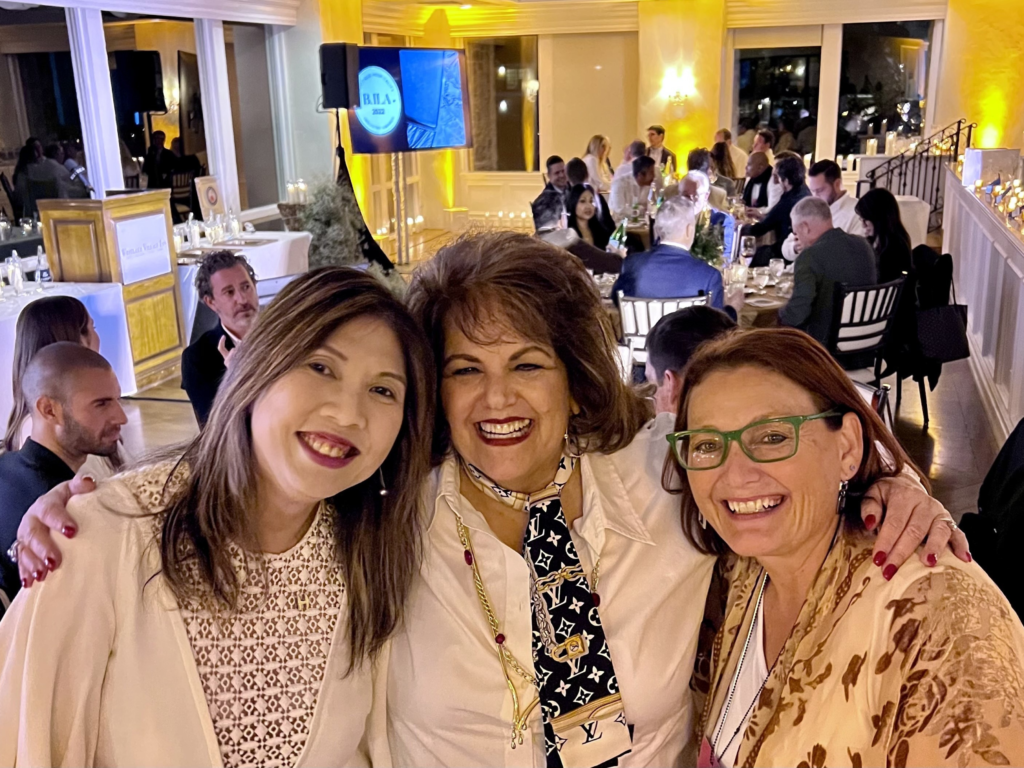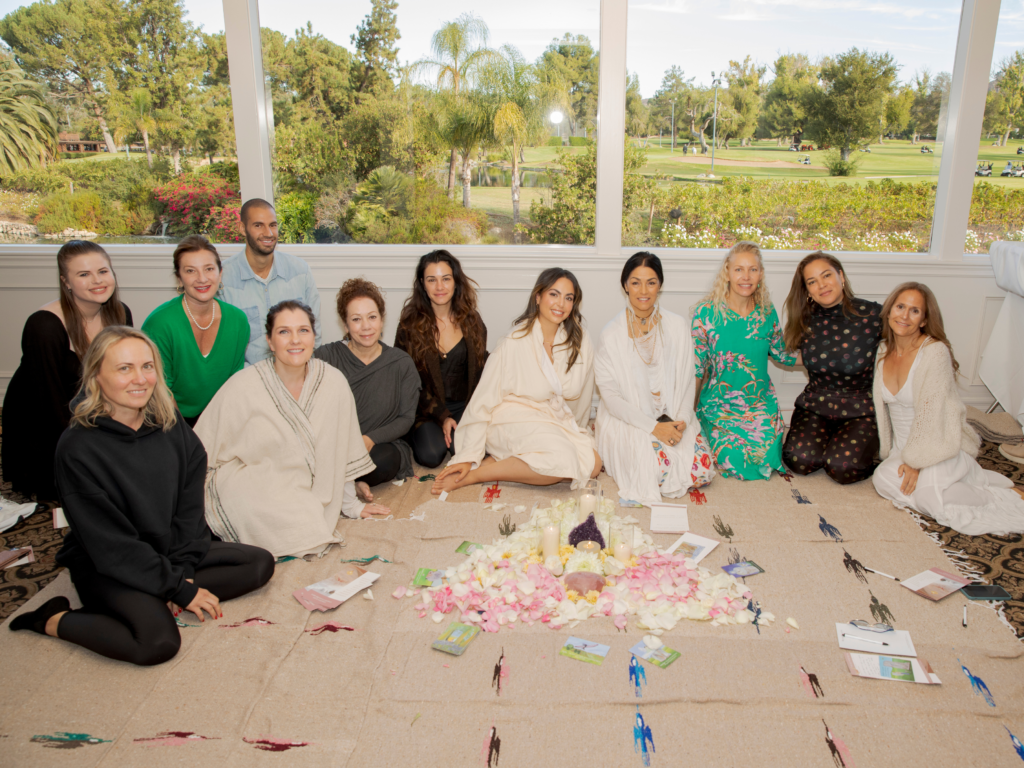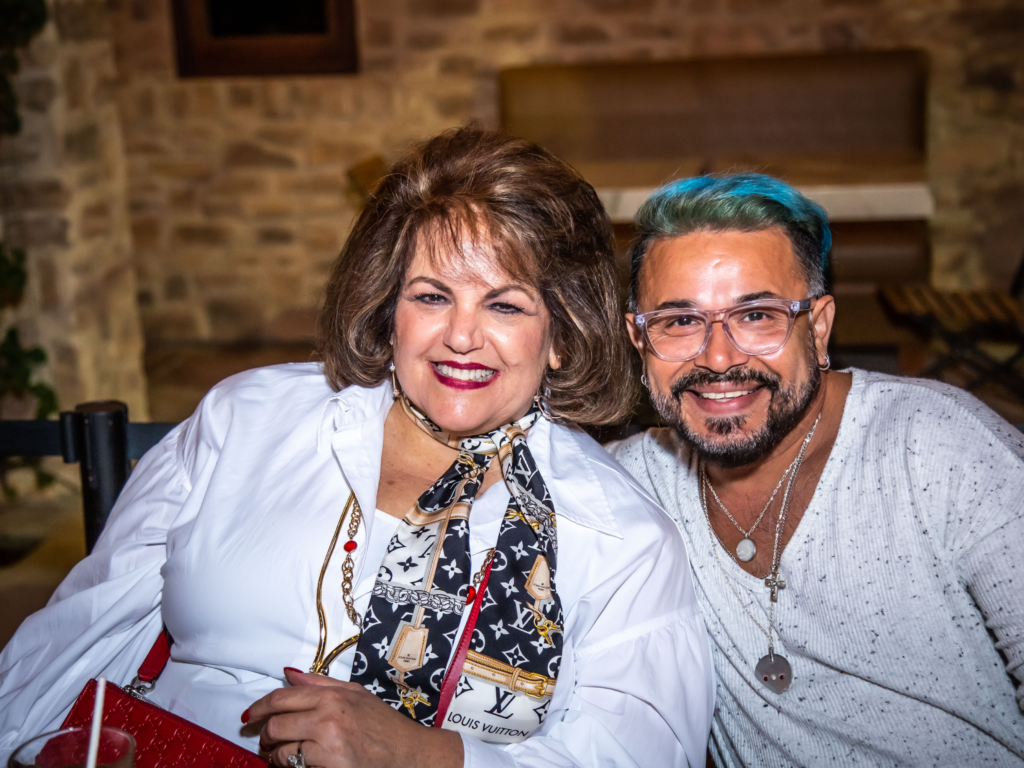Sincerely, BLLA
Event Design and Leadership Trailblazers
A deep dive into the skillful gathering of boutique hotel leaders powered by BLLA BLLA (the Boutique Lifestyle Leaders Association) is kno...
Sincerely, BLLA
A deep dive into the skillful gathering of boutique hotel leaders powered by BLLA BLLA (the Boutique Lifestyle Leaders Association) is kno...
BLLA (the Boutique Lifestyle Leaders Association) is known for hosting multiple annual conferences leading the future of boutique hospitality. These events invite top leaders in the industry to network, celebrate one another’s successes, and consider a wide range of topics, from hotel ownership and investment to ethical tourism. This October, the organization, run by Frances Kiradjian and her daughter, Ariela Kiradjian, coordinated an enthusiastic couple of days in Westlake Village at the base of the Santa Monica Mountains, blanketed in an atmosphere of celebrated perseverance and collective wisdom for The Boutique Hotel Owners Conference. The event opened with the compelling intentions to challenge not only the status quo of hospitality as we know it today but also the style in which professionals share ideas and build community.
The theme of the conference, “Spill the Tea,” encouraged all guests to participate with honesty, vulnerability, and an open mind. “Why did we choose this? Because it’s time to stop having conversations built on just looking good,” Ariela explained during her welcoming speech. “Let’s have real conversations. What are your actual opinions? No growth can happen if everyone is saying the same thing that your publicist told you over and over again. Well, that is not allowed here. We really want to know what you think.” Ariela joyfully kicked off a series of related topics such as Awakening to the New Way of Doing Business, Conscious Tourism and Slow Travel, and How Energy Plays a Part in Creating a Boutique Hotel Experience. Attendees also had the chance to join a New Moon Circle, which held space for participants to meditate, manifest, and journal.
Though the conference’s theme was unconventional, as most professional events tend to emphasize efficiency instead of an open-hearted approach, BLLA offered foundations that set the tone for genuine collaboration. “Let’s have the courage to be vulnerable. We’re all in the same industry. We’re all in boutique hospitality. We’re a community, and let’s support each other.” Reminders for the atypical style of the event included: Be yourself, lead with compassion and be open-minded while you’re in the home of BLLA. No narrow-mindedness. Be present and ask questions at all times. Q&A didn’t wait until the end, encouraging engagement between guests, facilitators, and panelists.

During this time of post-pandemic reformation, as businesses examine the lasting effects of the last few years, BLLA’s insightful approach is a refreshing reminder that the travel sector is a space built on humanity and connection. Returning to these values, the conversations held during the conference transcended surface-level “business talk” and re-established the industry’s creative ingenuity behind boutique lifestyles. Because all meetings were Q&A style, the facilitators, audience, and speakers were encouraged to engage in meaningful, collaborative dialogue.
One notable moment of transparency occurred when hotel owners Natalie Binder and Chet Pipkin shared the positive impact their brands have recently experienced from developing a vision through truth and accountability. Binder shared the challenging history of her property, CampV’s, difficult past. The area near Telluride, CO, has a complex history built upon mining settlements and housing for engineers working in uranium mills. Instead of burying CampV’s past, Binder weaves the narratives into the hotel design. She sees sharing these stories as a way to build a sense of purposeful community and bring like-minded people into the space to grow and heal together. She explained;
“One of the big things that we do is we’re retelling this history, but we’re saying, you know, now we have a new future which is based on outdoor recreation and art, and we’re actually healing some of this trauma that took place by starting with the Native Americans, and going all the way to the mining that took place here. For us, history is really important for storytelling and for giving people connections as to why they’re coming there or why they should travel there, and I think that’s one thing that travelers are really searching for when they come to these places […] they can then feel the healing that’s taking place. They’re tapped into that, and I think if we didn’t tell that story or admit what had happened, it’s like it’s too perfect, right? We wouldn’t be giving people permission to heal. People really appreciate that. Like, oh wow, this took place, but now you’re trying to change it. You’re telling a new story.”

Binder’s dedication to disclosure reflects an authentic approach to localization and conscious tourism. Chet Pipkin, passionate philanthropist and owner of Desolation Hotel, added, “and we would aspire to be the same, to attain your level of really coming from the heart for the area, for the community, the people that live there, the trials and tribulations that are taking place there, doing everything we can to attract and curate these experiences. This includes people coming from afar and doing everything we can honor that community, the priorities of the people that live there, the values that they have, and the causes that they want to advance.”
This form of conscious tourism emphasizes the value of empowering local communities by elevating historically marginalized voices and reframes community involvement as an opportunity to educate. “Invariably, there are unintended consequences to what it is we do, and just trying to be very aware of what those are and the impact that those are going to have—then working to mitigate those and compensate for them as much as we can. But it all boils down to caring. When you care, then you’re more likely to get this stuff right,” Pipkin explained. Through collective support and honest dialogue, the industry can begin moving in the right direction to incorporate similar practices into future developments.

Another shining moment of openness came during an emotional conversation between Ariela and wellness enthusiast Darlene Cordero, Director of Talent Relations and Outreach at Chopra Global. The women discussed dismantling the toxic “hustle culture” to create a more sustainable work culture. “I would just love to confess. I’ve had a hard time. I was burnt out. I would say for a couple of years, it was hard. I love everyone here, but it was really hard to work hard,” admitted Ariela. Corporate culture in all sectors emphasizes productivity and efficiency over well-being, and the feeling of being ‘burnt-out’ is relatable to most Americans in the workforce. In fact, The American Psychological Association reports that in 2021, “nearly 3 in 5 employees reported negative impacts of work-related stress.” By illuminating the reality of this phenomenon, the group felt compelled to share similar experiences and tools they found effective in navigating feelings of exhaustion and fatigue.
Cordero notes how the pandemic challenged society’s relationship with corporate culture and how her personal battle with illness shifted her perspective on productivity. “When I think about what the pandemic did for us and what the difference is between now and then is that we had a hustle mentality, right? It was very go go go. We all know this. We all had to stop and reflect on what mattered the most to us. I had that moment two years prior because I was diagnosed with breast cancer, and when that happened, it was a reflection, a moment to stop and say, you know, what am I doing?” The women agreed that this pressure to grind and prioritize productivity over wellness is an ineffective approach that negatively impacts the hospitality industry and community. However, the pandemic provided a collective shift in thinking about wellness in the workplace. “The hustle culture has got to go. It does so much detriment to [not only] ourselves but our communities and the earth,” said Ariela.
These valuable moments of connection couldn’t have happened without Ariela and Cordero opening up about the emotionally challenging times they’d experienced. And the audience met them with enthusiastic support, sharing their techniques for coping, setting boundaries, and slowing down to prioritize balance in their careers. “I think something that I’ve started to learn as I’m getting older is to start to create the boundaries around allowing myself to take breaks, even if it’s during work,” audience member Rosa Arnone (VP of Customer Success at Selfbook) told the panelists. “If I need to take a deep breath or a beat to meditate during the day, or even to jump on a bike and do a quick cycle to clear my head like that’s OK. I’ve started to tell my colleagues that’s what I’m doing too. But I’ve started to trust myself a little more and feel less guilty. I try to keep working on weekends to a minimum and focus on my family and myself and use that time to rejuvenate. I think it’s made me better in my career because I’m starting to trust myself.”

Another listener pointed out that changing a culture is a collaborative pursuit and asked how he could incorporate these ideas with his team. Cordero noted that it’s important companies and upper management display of positive work/life balance; “I think you being part of that culture is the only way that we can really make a change. You, being part of meditation, you living that life. If that’s what’s authentic to you, then the employees will do it.”
Another notable moment of connection occurred when Bashar Wali, Ari Heckman, Brian De Lowe, and Maya Mallick spoke on the reality of navigating hotel ownership in 2022. Forgoing polite semantics, Bashar Wali, Founder and CEO of Practice Hospitality and This Assembly, opened the conversation with blunt honesty;
“I mean, look, fundamentally, our business was hit in the last two years like no other business,” Wali told the room. “The statistic we use is: Disneyland was closed two times in history JFK, and 9/11. Then it was closed for almost a year during the pandemic. So, our industry was whacked pretty hard, and I think it saw some come back strong in the drive to the destination. But there are a lot of people hurting.” This moment of direct transparency leveled the room, emotionally engaging everyone and setting a tone for authentic dialogue driven toward tangible solutions. The group enthusiastically discussed the pros and cons of temporarily lowering prices, focusing on guest experiences, controlling expenses, membership clubs, investing in people and training, and teaming up with partners.
These brief glimpses into the conference reflect how “spilling the tea” positively impacted the professional connections formed over a magnetic couple of days and how the boutique sector can support one another to strengthen the boutique lifestyle’s values and reach.

“Really, it takes a village. And I think the more conferences like this that we do, the more the word is going to get out there, and it’s a special community,” Nile Tuzun, Founder and Chief Creative Storyteller at Studio Nilebrand, said during the end-of-day reflection.
Agreeing with the sentiment, Jayson Seidman, BLLA Advisory Board Member and Founder and Managing Partner of Sandstone, added, “We can see the future, but at the same time, we can’t be ignorant to the past. I think it’s important to remember why. Why a boutique hotel exists, and why it’s out of necessity, right? We all need to stick to our fundamentals of why we’re all here, with the intention of doing. And we share that common bond.”
An audience member commented, “I think what’s really special about these two days is that you’ve created an environment where everyone feels safe to share information with each other.”
The event’s success can be attributed to the collective vulnerability leading to meaningful connections between industry leaders. The 2022 conference elegantly represented the promising future of boutique hospitality, a space supported by an open, creative, and proud community.
Now with Over 13,000 Global Network Members and the Launch of the New TIEWN Website LOS ANGELES, CA – July 2, 2025 – The 2025 Women in Travel &a...
In Celebration of International Women's Day & Women's History Month By: Frances KiradjianI contemplated this discussion around women's gathe...
